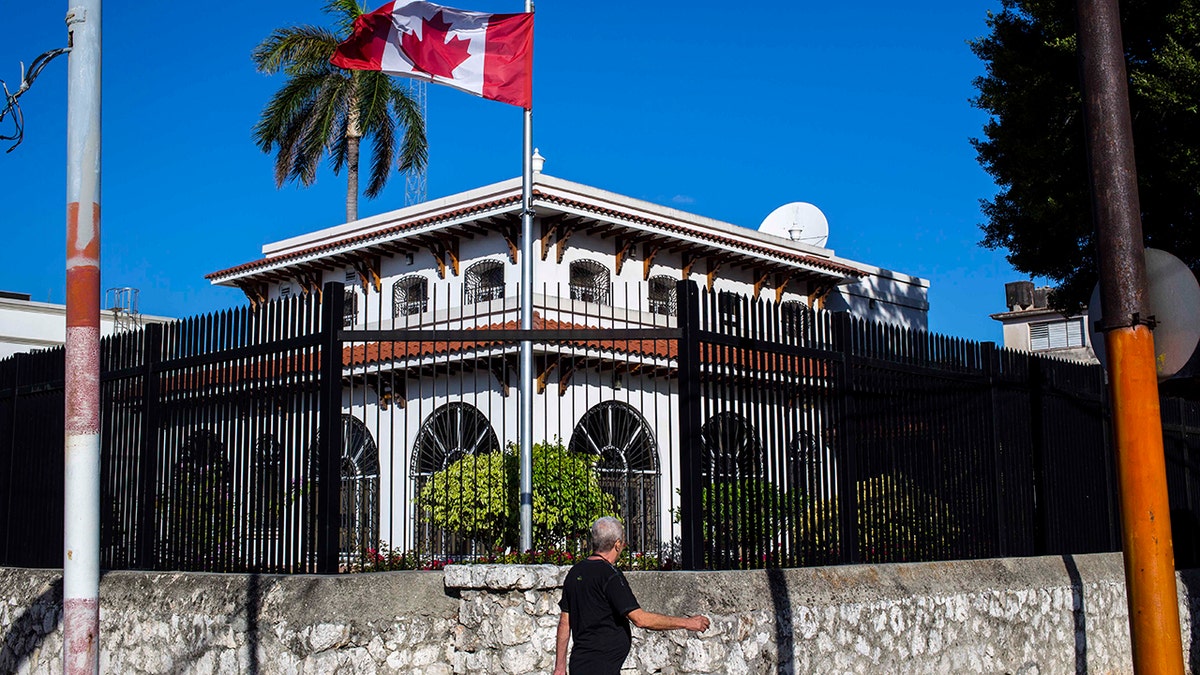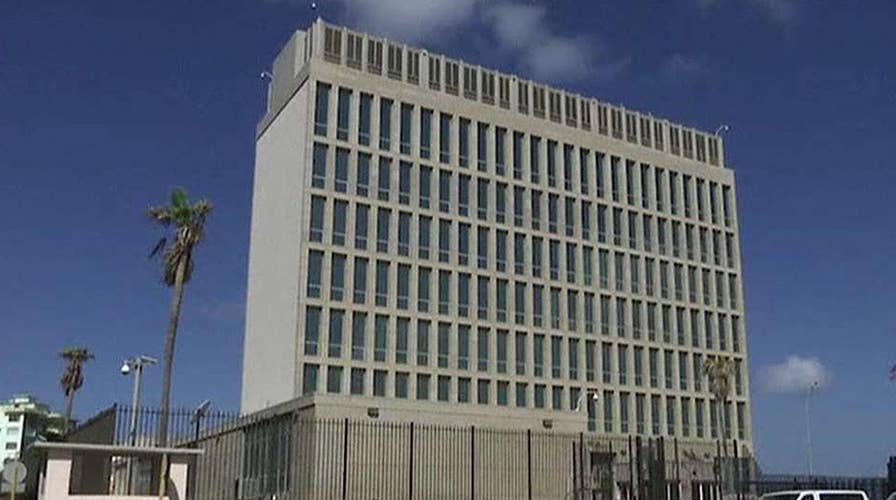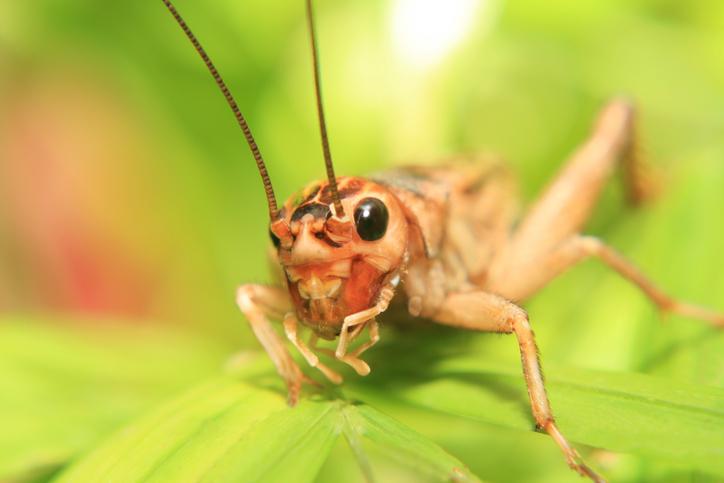Canada has decided to remove up to half of its embassy staff in Cuba after another diplomat fell mysteriously ill – bring the number of confirmed unexplained health cases to 14 since early 2017.
Ottawa confirmed Wednesday that the staff at the embassy in Havana was going from about 16 positions to up to eight. The 14 Canadians affected includes diplomats and some of their family members, officials said.
A senior Canadian government official said in a briefing for journalists that the latest case involves a diplomat who arrived at the Caribbean island in the summer and reported symptoms on Dec. 29.
'SONIC WEAPON' USED ON US DIPLOMATS IN CUBA MAY INSTEAD HAVE BEEN CRICKETS, SCIENTISTS SAY

In this April 17, 2018 file photo, a man walks beside Canada's embassy in Havana, Cuba. Canada announced Wednesday, Jan. 30, 2019, it is removing up to half of the Canadians at its embassy in Cuba after another diplomat was found to have fallen mysteriously ill. (AP Photo/Desmond Boylan, File)
“A further reduction in the (Canadian embassy) footprint is deemed to be the appropriate response,” an official told reporters, according to Reuters.
Canadian and U.S. diplomats in Havana first began complaining of dizziness, headaches and nausea in the spring of 2017.
Twenty-six workers at the U.S. embassy in Cuba have been affected, suffering a range of symptoms and diagnoses including mild traumatic brain injury, also known as concussion.
The U.S. reduced its embassy staffing in Cuba to a maximum of 18 from more than 50 after more personnel developed unusual illnesses.
Spouses and dependents of Canadian diplomats were ordered to return home last April.
Canada said it will continue to have an ambassador in Havana and full consular services will be available for Canadians. However, other programs may be adjusted in the coming weeks and diplomatic staff from outside Cuba might assist.
Josefina Vidal, Cuba's ambassador in Canada, issued a statement saying her government considered the move "incomprehensible," but "Cuba remains committed to keeping the good state of bilateral relations."
“This behavior favors those who in the United States use this issue to attack and denigrate Cuba,” Vidal said.
The Cuban government has been cooperating with a Canadian investigation into the cause of the illnesses, which has not been determined.
“I think I can safely say the Cuban officials are as frustrated as we are that we cannot get any closer to determining a cause,” the Canadian government official told reporters.
Cuba is a favorite tourist destination for Canadians and the Canadian government said there is no evidence of any related ailments among Canadian travelers. One official said Canadian relations with Cuba are very strong.
Cuba has adamantly denied any involvement in the health problem.
CLICK HERE TO GET THE FOX NEWS APP
The mysterious case has sent U.S.-Cuba relations plummeting from what had been a high point when the two countries, estranged for a half century, restored full diplomatic ties under President Barack Obama in 2015.
Kimberly Breier, the current U.S. assistant secretary of state for the region, noted the latest confirmed Canadian injury in a tweet.
"Our thoughts are with all those affected from Canada and the U.S. We demand the Cuban government fulfill its obligation to protect foreign diplomats & their families," Breier tweeted.
A Canadian official said government officials are working closely with U.S. officials. The U.S. has not said what caused the incidents, although initial speculation centered on some type of sonic attack. The Canadian official said they have no information to indicate a cause or what might or who might be behind it.
A report published in the preprint journal BioRXiv earlier this month claimed the buzzing may actually have been caused by crickets.











































